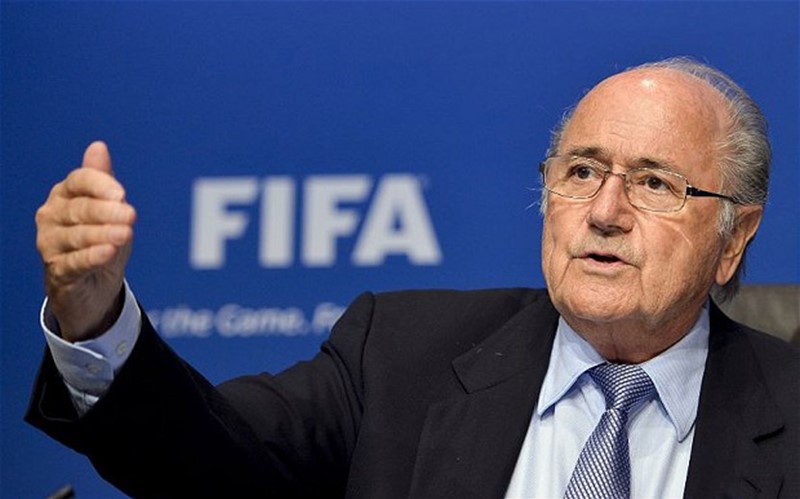
FIFA president Sepp Blatter has praised a “very special World Cup” in Brazil on Monday and gave the hosts a mark of 9.25 out of 10, slightly better that the 9 he had given South Africa four years ago.
“We calculated last night and used all the computers. Out of 10 we came to 9.25, nine and a quarter,” he said.
“So Brazil has improved since South Africa. Perfection does not exist. If someone at university got 10 out of 10 they must have some arrangements with the professors.”
The head of football's world governing body said he was leaving Brazil “a happy man” after watching some “great football” during the tournament and praised the “intensity and passion” of the matches.
Blatter also praised “fair play” at the tournament and said there had been fewer injuries.
In all there were 177 yellow and 10 red cards, the lowest number since 32 teams took part for the first time from France 1998.
“There has been some criticism of referees that they are not giving enough yellow cards but this is not the case if you look at the results,” Blatter said.
Blatter pledged FIFA would continue the fight against racism and discrimination in football and said he was “not totally happy” that enough had been done so far.
At Sunday's World Cup final, he discussed the issue with Russian President Vladimir Putin whose country is hosting the next World Cup in 2018. Putin “insisted we will fight against this,” Blatter said.
Blatter would not be drawn on comparing the Brazil tournament with past World Cups, but said the tournament had been “exceptional” and “the bar will be very high” for the 2018 World Cup in Russia.
He said he knew at the opening match between Brazil and Croatia that “something will change in this country,” and when the Netherlands beat world champions Spain 5-1 it confirmed that the World Cup would be “something very special.”
On the long ban on Uruguay striker Luis Suarez for biting, Blatter said: “As a footballer I feel with him, that such a punishment hurts, but as president of FIFA I have to accept the decision taken by our independent committees.”
Blatter also admitted to being “a little bit surprised” by the Golden Ball award to Lionel Messi as the outstanding player of the World Cup in Brazil.
Brazil 2014 saw a total attendance of 3 429 873 with an average of 53 592 for the 64 matches, with the 171 goals scored equaling the record from France 1998.
World Cup winners Germany scored the most goals (18) while hosts Brazil conceded the most (17) and quarter-finalists Costa Rica (2) the least.
FIFA also reported record global television viewing figures, with all-time records in Germany, the Netherlands and Belgium, as well as record use of social media.
Brazil organizers and government representatives meanwhile highlighted the legacy for the country in infra-structure, stadiums and technological know-how among other things.
Deputy Sports Minister Luis Fernandes said: “One of the landmarks the World Cup is leaving to the world is the certainty that it is possible to unite efficiency ... with an environment of party, of celebration, of spontaneity that has reached the world.”
Sports Minister Aldo Rebelo said the World Cup had shown “the capacity football has to create a geo-political event with a great impact” which united people around the world.
“That you will feel like coming back one day is the biggest legacy and the biggest gift you can give to us,” he said.
The World Cup baton now passes to Russia, and chief organizer Alexey Sorokin said no one is going to be disappointed.
“We have been working for three and a half years now, but now the work has to intensify,” he said. “We will have a lot of surprises for you and a lot of treasures if you come to Russia in 2018”.


